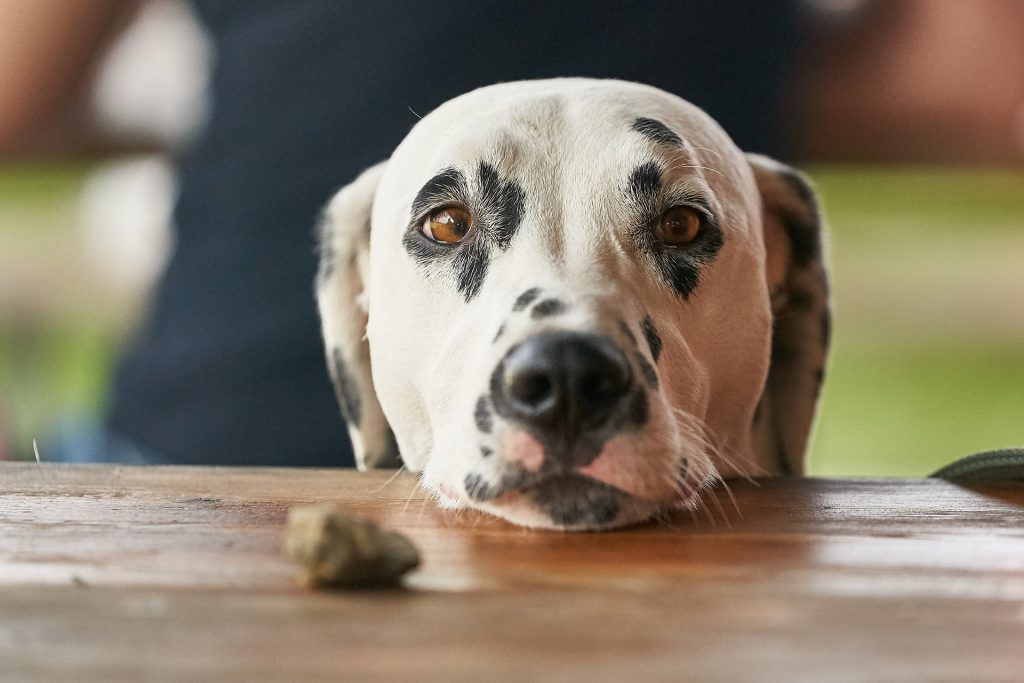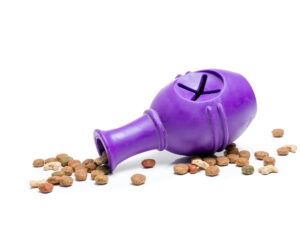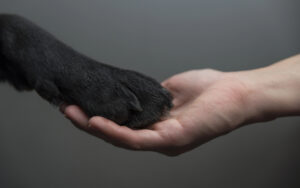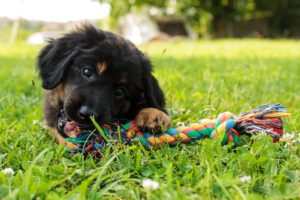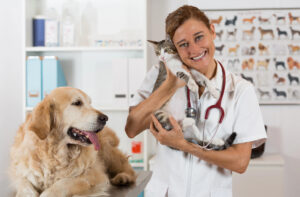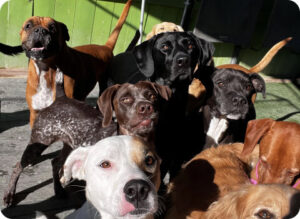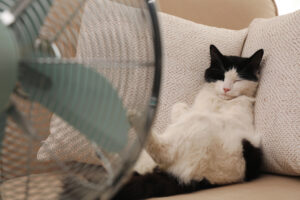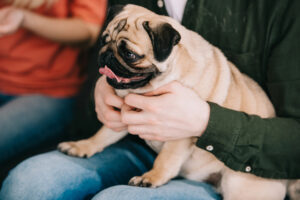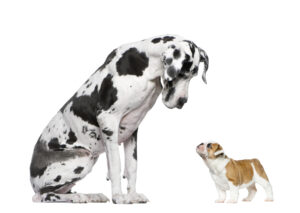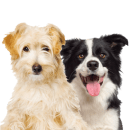As dog lovers, we want the best for our furry loved ones and want to share our homes, beds, and sometimes our favorite foods, but is it safe to give them our tasty treats? A lot of the foods we eat as humans, like fruits and vegetables can cause issues for a dog and lead to health problems. However, there are also some foods you eat that are shareable and can actually provide health benefits, like better breath, allergy immunity, and joint strength. We have put a list together for you of safe and unsafe foods for your furry friend.
Human Foods that are Safe for Your Dog
![]() Bread
Bread
Small amounts of plain bread won’t harm your dog, but it also provides no nutritional value. It can also provide unwanted calories causing weight gain. So you don’t need to be concerned if your dog gets a few bites of bread, but it’s not something you want to feed them on a regular basis.
![]() Cashews
Cashews
Dogs are allowed to eat cashews and they have some health benefits. Cashews have calcium, protein, magnesium, and antioxidants. However, these nuts can lead to weight gain they should only be given a few at a time as well as being unsalted.
![]() Cheese
Cheese
Unless your dog is lactose intolerant, which isn’t common, cheese can be a great treat in moderation. Cheeses that are lower in fat like mozzarella and cottage cheese are better choices to avoid your dog having weight gain.
![]() Coconut
Coconut
The tropical fruit that comes from a coconut palm has great benefits for your dog. Coconut can combat bacteria and viruses because it contains lauric acid. It also helps with bad breath, hot spots on their skin, flea allergies, and itchy skin. Your dog can also have coconut milk and coconut oil. The one thing to keep away from your dog is the outside shell as it could get lodged in their throat if they swallow it.
![]() Corn
Corn
One of the most common ingredients in dog food is corn, so it is safe, but can be hard to digest. If you share your corn with your pup, be sure it is off the cob. 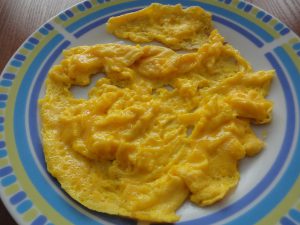
![]() Eggs
Eggs
Cooked eggs are safe for your dog and a wonderful source of protein and can help with an upset tummy. Be sure the eggs are fully cooked as uncooked whites can lead to a biotin deficiency.
![]() Fish and Seafood
Fish and Seafood
Fish is safe human food for your dog and gives a health boost from its good fats and amino acids. Salmon is loaded with vitamins and protein, whereas sardines have soft digestible bones full of calcium. Other than sardines, be sure the bones are picked out of any fish you give to your dog. Also, be sure that the fish is fully cooked and cooled before feeding it to them. We suggest only giving your dog fish twice a week. A few other fish and seafood that are safe for your furry friend in moderation are shrimp, tuna, crab, herring, and anchovies. If you give your dog shellfish, be sure the shell is completely removed.
![]() Ham
Ham
Although high in sodium and fat, ham is safe for your dog to eat. Giving them a small piece as a treat from time to time is ok.
![]() Honey
Honey
The sweet treat of honey is packed with nutrients, antioxidants, and vitamins. It includes vitamins A, B, C, D, E, and K, potassium, calcium, magnesium, and copper. You can even feed small amounts of honey to your dog to help build up an immunity to allergens in your area because of the pollen in honey.
![]() Milk
Milk
Your dog’s main source of liquid should be water, but as long as your dog isn’t lactose intolerant, they can have some milk from time to time. If you give your dog milk, watch for signs like vomiting and diarrhea, as these are some signs they are lactose intolerant.
![]() Peanut Butter
Peanut Butter
An excellent source of protein is peanut butter, it also contains vitamins B and E, niacin, and heart-healthy fats. Using unsalted peanut butter is the best option, and be sure it does not contain xylitol which can be toxic to dogs.
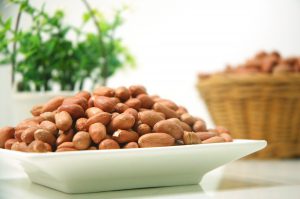
![]() Peanuts
Peanuts
The legume, known as a peanut is safe for dogs to eat. They are packed with protein and healthy fats that can benefit your dog. Because they are high in fat, give them in moderation to avoid issues with the pancreas and avoid salted peanuts.
![]() Popcorn
Popcorn
Ait-pooped, unbuttered and unsalted popcorn is ok for your dog in moderation. Popcorn can promote eye health and digestion because it contains riboflavin and thiamine. Be sure the kernels are fully popped as unpopped kernels can be a choking hazard. Popcorn also has small amounts of protein and iron.
![]() Pork
Pork
Giving your dog pork provides them with amino acids and is highly digestible. It also contains more calories per pound than any other meats. Your dog is also less likely to be allergic to pork than other human foods high in protein.
![]() Quinoa
Quinoa
High-quality dry dog foods often contain quinoa as a substitute for corn, wheat, and soy. This grain is high in protein and has all nine amino acids. This gluten-free grain is also high in fiber, magnesium, B vitamins, iron, potassium, calcium, phosphorus, vitamin E, and various beneficial antioxidants.
![]() Turkey
Turkey
As long as you remove the skin and fat from the turkey meat, turkey is fine to give to your dog. Also, be sure to never give your dog poultry bones and these can splinter during digestion causing blockage or tears in the intestines.
![]() Wheat and Grains
Wheat and Grains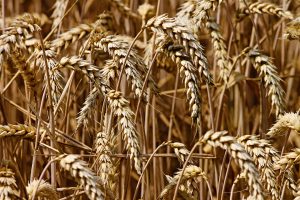
Dog food does not need to be grain-free and most dogs can eat wheat. Grains provide a good source of protein, essential fatty acids, and fiber. However, if your dog has an allergy, it may be best to avoid grains and you should ask your veterinarian for suggestions.
![]() Yogurt
Yogurt
An acceptable snack for your dog is plain yogurt unless they have issues with digesting dairy products. The active bacteria provides a stronger digestive system from the probiotics in yogurt. Be sure to use plain yogurt with no added sugar or sweeteners.
Human foods that are ok for your dog to have should be given to your dog in moderation, without added seasoning, and without added fat.
Human Foods that are Unsafe for Your Dog
![]() Alcohol
Alcohol
Just as kids should not have alcoholic beverages and food products containing alcohol, neither should your dog. It can cause vomiting, diarrhea, decreased coordination, central nervous system depression, difficulty breathing, tremors, abnormal blood acidity, coma, and even death. Under no circumstances should your dog be given any alcohol. If you believe that your dog has swallowed alcohol, contact your veterinarian or the ASPCA Animal Poison Control Center immediately.
![]() Almonds
Almonds
Although almonds aren’t toxic, they can block your dog’s esophagus or even tear the windpipe if they are not fully chewed. 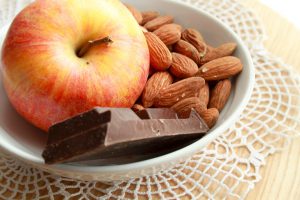
![]() Chocolate
Chocolate
This is probably one of the most common known human foods not to give to your dog, and for good reason. Chocolate has toxic substances called methylxanthines, which are stimulants that can stop your dog’s metabolic process. Even a small amount of chocolate, especially dark chocolate, can cause diarrhea and vomiting. If your dog has a large amount it can cause seizures, irregular heart function, and even death. Be sure if you have chocolate in your home, that is kept out of reach from your dog.
![]() Cinnamon
Cinnamon
The festive spice cinnamon isn’t toxic to dogs but can be irritating to your dog’s mouth and make them feel uncomfortable and ill. It can also lower their blood sugar that may lead to diarrhea, vomiting, change in heart rate, and even liver disease.
![]() Garlic, Chives, Onions, and leeks
Garlic, Chives, Onions, and leeks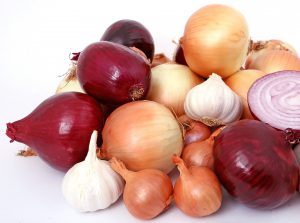
The allium family that includes chives, garlic, onions, and leeks are toxic for your pets. It can create anemia that leads to pale gums, weakness, an elevated heart rate, and even collapsing. Garlic is the most toxic of the allium family. If you have reason to believe they have consumed garlic you will want to keep an eye on them for a few days as the symptoms can be delayed. It’s also a good idea to notify your veterinarian.
![]() Grapes and Raisins
Grapes and Raisins
It’s unknown if grimes or raisins are toxic to dogs, but it is known that it can lead to kidney failure. Grapes can also be a choking hazard, especially for smaller dogs, so it’s best to avoid giving your dog any grapes or raisins.
![]() Ice cream
Ice cream
Because of the amount of sugar in ice cream, it’s best not to give your dog this sweet treat. Some dogs are also not able to digest dairy products. You can however still find sweet cold treat recipes to give your dog frozen strawberry or pineapple chunks.
![]() Macadamia Nuts
Macadamia Nuts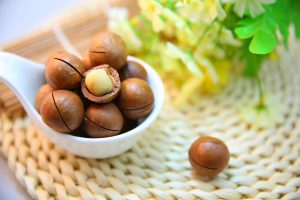
One of the most poisonous foods to your dog is macadamia nuts. If consumed, it can cause vomiting, increased body temperature, lethargy, and the inability to walk. It can also affect the nervous system and cause tremors. Never feed your dog macadamia nuts. Be sure if you suspect your dog has had macadamia nuts to contact your veterinarian.
![]() Xylitol
Xylitol
The sweetener xylitol is used in many products such as gum, candy, baked goods, and even toothpaste. When it’s ingested by a dog it causes insulin to release which can lead to liver failure and low sugar levels. Some initial signs to watch for are vomiting, lethargy, and loss of coordination. It can even lead to your dog having seizures.
![]() Yeast Dough
Yeast Dough
If your dog swallows yeast dough it can rise and cause gas to accumulate in its digestive system. It will be painful, causing them to bloat, and potentially they will have stomach twisting which can be life-threatening.

No matter how cute your dog looks at you with those sad puppy dog eyes, be sure to keep them safe and don’t give them any harmful human foods!
If you are in the San Diego area and looking for quality pet care services, including dog training you can rely on Fon Jon Pet Care. Contact Fon Jon Pet Care at 1-858-250-3601 or visit our site today and we will be happy to help you with your pet care service needs.
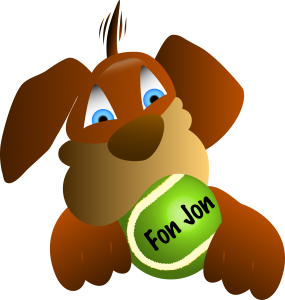 Fon Jon Pet Care
Fon Jon Pet Care
Serving San Diego Since 1950 | Celebrating 70 Years of Pet Care Services




